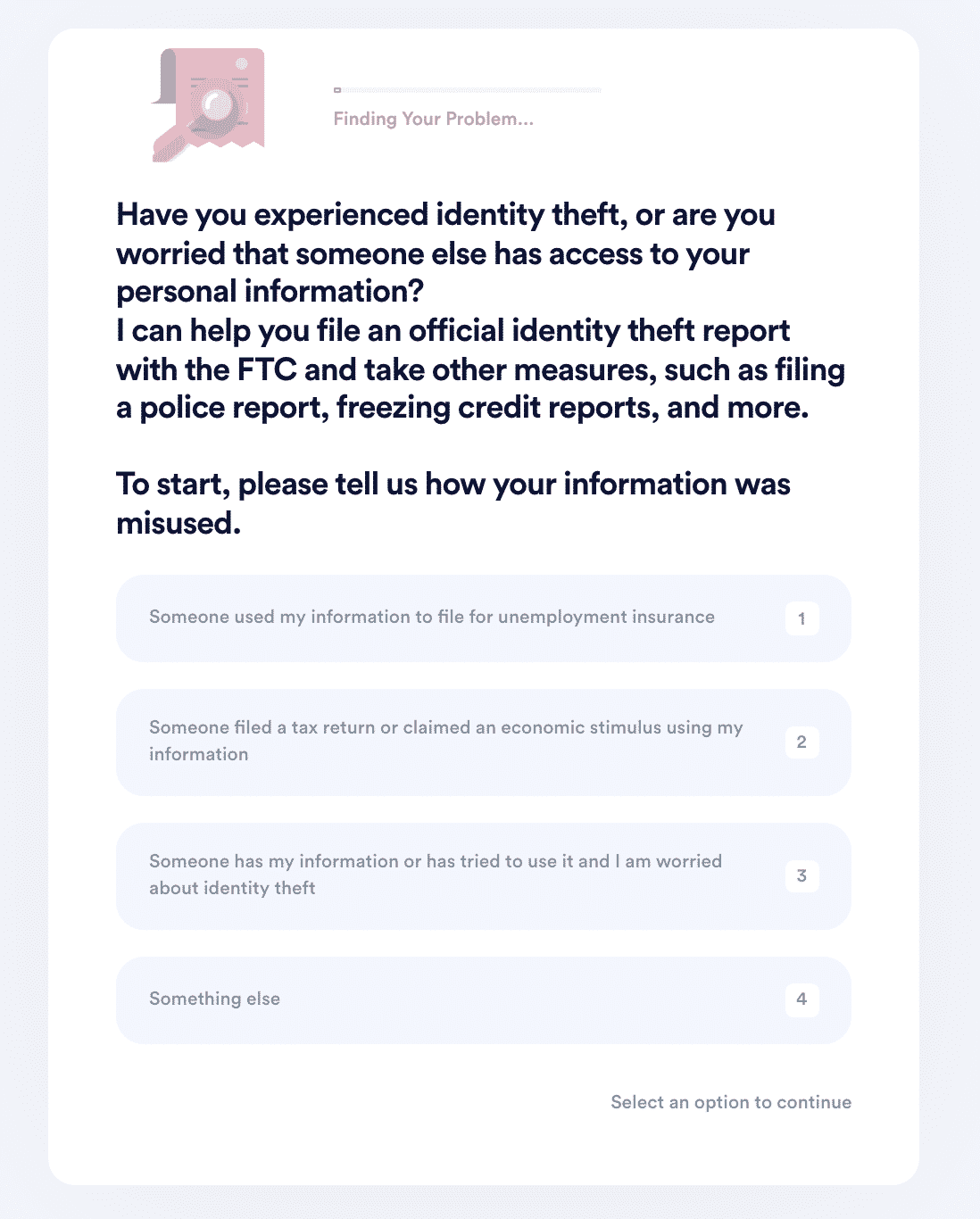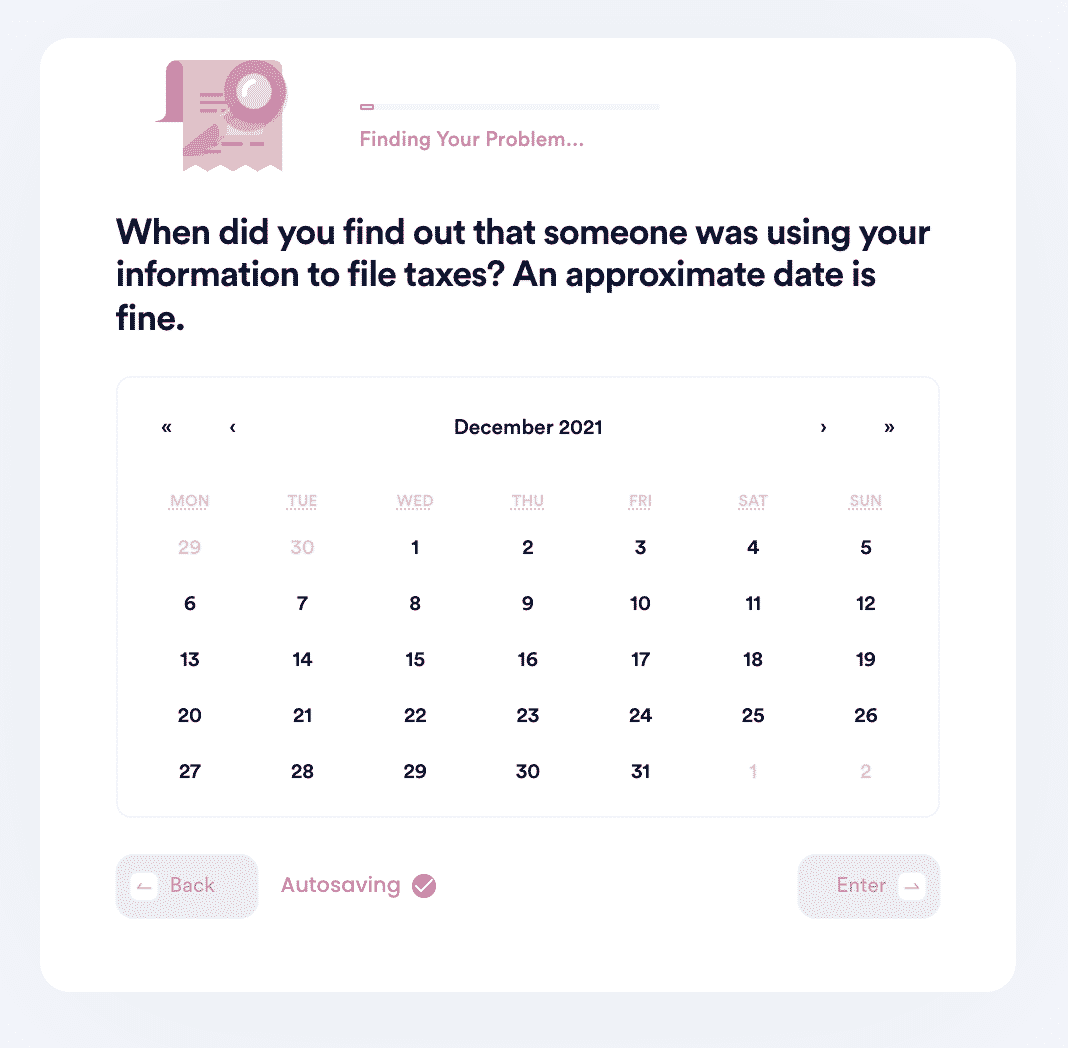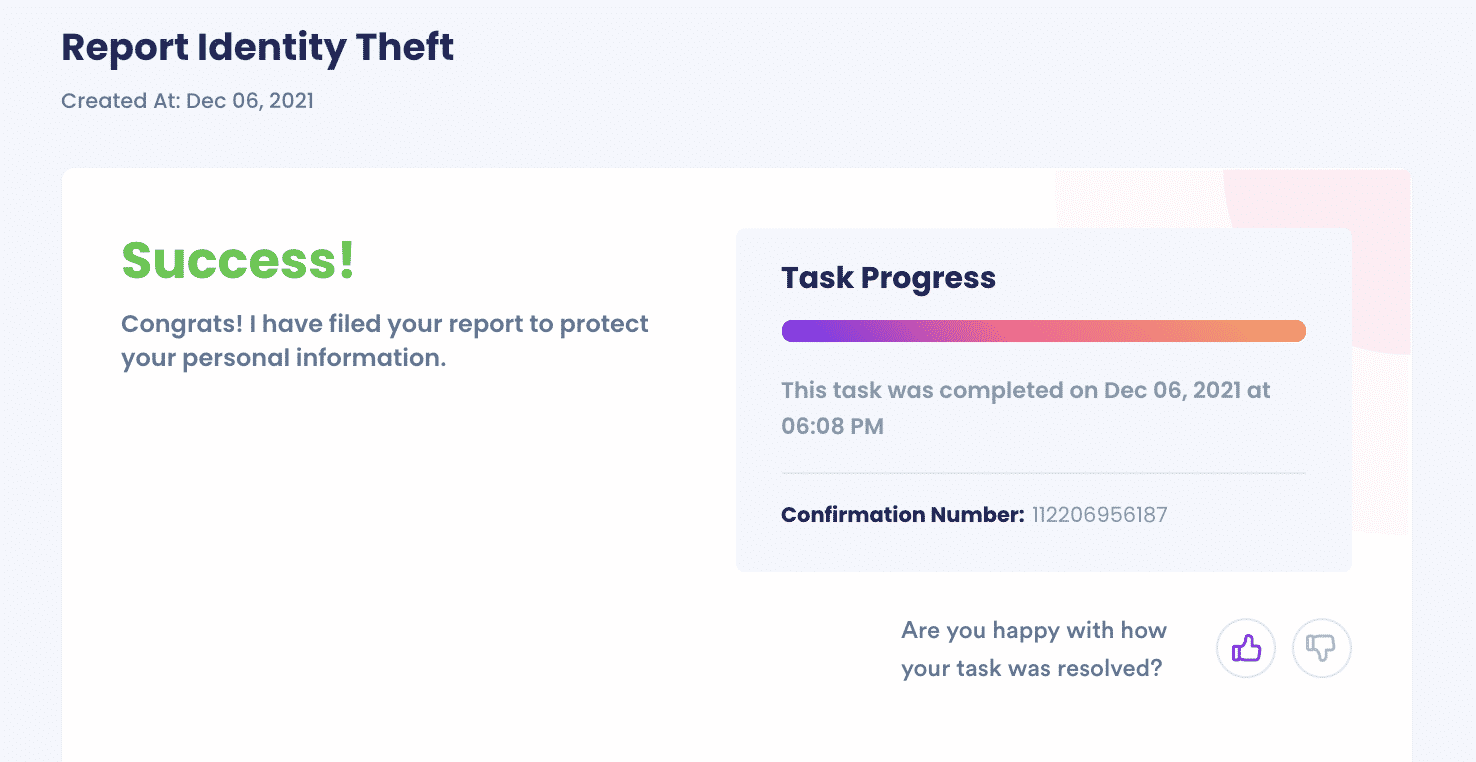What You Should Know About RFID Identity Theft
Identity theft occurs when your personal information is stolen and used without your permission, usually to make significant financial decisions. When someone steals your identity, they can do things like stealing stimulus checks, opening and using a new credit card, and filing for unemployment - all under your name. There are many types of identity theft, including Social Security, IRS, and via credit bureaus like Experian or Equifax. A new kind of identity theft that's becoming more rampant in the current day is , and it's important to know what to do if you become a victim of this specific type of identity theft.
Read on to discover how to streamline the reporting process for RFID identity theft with DoNotPay.
What is RFID (Radio Frequency Identification)?
RFID is an acronym that stands for radio frequency identification. This type of identification utilizes modern technology to identify various objects or individuals without requiring direct contact. One of the most commonly used forms of is using credit cards to make a contactless payment - you can pay via chip by placing your card over the card reader without directly touching it. Electronic tags like Tile also represent a form of radio frequency identification.
What is RFID Identity Theft?
RFID-specific identity theft occurs when someone steals your personal information using an RFID reader. RFID readers are essential for radio frequency identification to function properly, but they can also be used to steal. Someone who owns a personal RFID reader has the ability to potentially activate someone else's credit card chip, therefore obtaining their credit card information and, potentially, their personal information. This phenomenon is referred to as digital pickpocketing, as thieves are essentially stealing right out of your pocket, just in a modern and digital fashion. Because the thief doesn't need to physically take your wallet to steal your identity, can be difficult to catch initially.
How to Prevent RFID Identity Theft
There are several steps you can take to protect yourself from identity theft, including:
- Changing passwords regularly on websites that safeguard personal information.
- Monitoring credit card bills and bank statements to catch any unfamiliar activity.
- Shredding all documents before disposal, especially those that contain uncensored personal information.
Additional steps to protect yourself from RFID identity theft:
- Invest in an RFID-blocking wallet to prevent scans of your credit cards, identification cards, and/or passports.
- You can also wrap cards in aluminum foil to protect them
Signs That You May Be a Victim of RFID Identity Theft
If you believe someone has stolen your identity via RFID, here are some things to look out for:
- Receiving unfamiliar bills or experiencing unfamiliar charges on a bank statement or credit card
- Denial of a loan or different line of credit, even though your credit score is good
- Usage of your Social Security number to receive government benefits
- Someone filing a tax return in your name
How to Report RFID Identity Theft on Your Own
Reporting identity theft is a long process with several intensive steps. If you've experienced identity theft, here's how to respond:
| Notify Your Financial Institutions/Close Accounts | You should notify every financial institution where you have legitimate accounts, so they can help you protect your accounts. You should also notify institutions where accounts were opened fraudulently. The banks can help you freeze or close accounts and do an investigation into the fraud. |
| Place a Fraud Alert On Your Credit Reports | Notify each major credit bureau. You can place a freeze on your credit reports to prevent anyone from pulling them, which can stop the perpetrator from opening new accounts in your name. |
| File a Report with the Federal Trade Commission (FTC) | The FTC can issue you a personalized recovery plan. A copy of your report, along with police reports, may be necessary for fraud investigations and for protecting your credit report and finances. |
| File a Police Report | You can file police reports with each police department or sheriff's department that has jurisdiction. Provide as much detail as possible so your report is as complete as possible. |
How to Use DoNotPay to Report RFID Identity Theft Quickly and Easily
DoNotPay can streamline the RFID identity theft reporting process, working across all companies with the click of a button. Follow the three simple steps below to learn how to report RFID identity theft with DoNotPay.
- Search "identity theft" on DoNotPay and select the type of incident you would like to report.

- Tell us more about the incident that occurred, including the location, date, time, financial loss, and any suspect information you may have.

- We'll identify whether you should file an FTC report, contact the IRS, freeze your credit report, contact state agencies, or file a police report. Once we guide you through the best options, we'll automatically submit the reports on your behalf!

And that's it! DoNotPay will make sure your issue gets sent to the right place. We'll upload confirmation documents to your task for you to view, and if the contacts need more information, they will reach out to you personally via email or mail.
What Else Can DoNotPay Do?
Dealing with various forms of identity theft is just one small part of DoNotPay's capabilities. If you're interested in learning more and working with DoNotPay, be sure to check out the links to different topics below.
- How to report identity theft
- How much can you send demand letters to for identity theft
- Contacting government representatives
- Information about insurance claims
- Information about small claims court
- Getting compensation for victims of a crime
 By
By